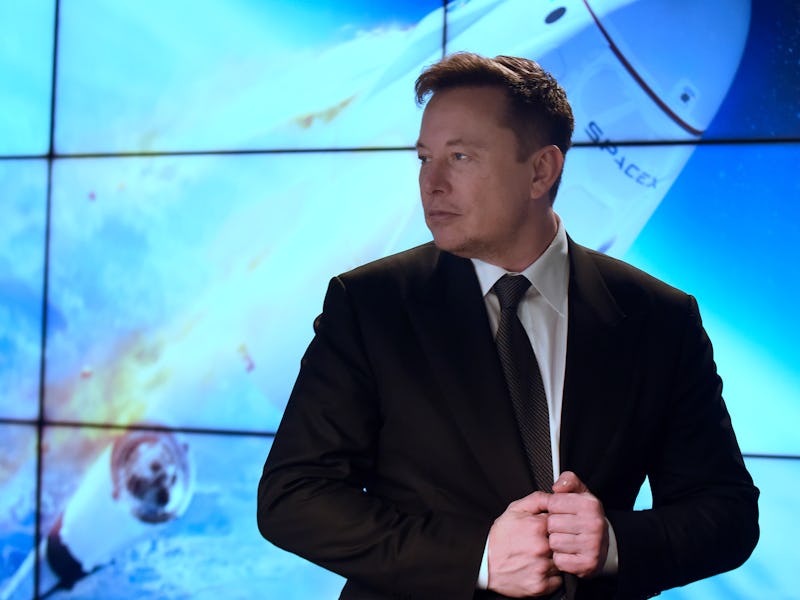What Elon Musk's love of science fiction reveals about Tesla and SpaceX
Harvard professor Jill Lepore reveals a fascinating backstory.

Elon Musk, inspired by science fiction, has shaped his companies around a very particular vision of the future.
The Tesla and SpaceX CEO regularly touts his love of the genre, naming products and vehicles after ones found in sci-fi and even declaring that he wants to turn science fiction into reality. His inspiration, however, might not agree with some of Musk’s actions.
Jill Lepore, professor of history at Harvard University, argues in a new podcast that Musk even represents a new kind of capitalism — “Muskism.”
Elon Musk: The Evening Rocket, released by the BBC in September, is making its U.S. debut through audio production company Pushkin. In an exclusive clip shared with Inverse, Lepore notes that the basic facts of Musk’s life already make him sound like something of a comic book character.
In fact, Lepore says a new ideology of capitalism called “Muskism” has started to emerge around him — “extravagant, extreme capitalism, extraterrestrial capitalism.” Stock prices are driven by “earnings” and “fantasies” from science fiction, “some of it a century old.”
Elon Musk: How his sci-fi love emerges in his work
On a broader scale, Musk’s influences are clear. His stated goal is to establish a million-strong, self-sustaining city on Mars by 2050. It’s part of a plan to transform humanity into a multi-planetary species.
But dig a little deeper, and SpaceX’s sci-fi roots lay even further. The company’s three droneships are named after ships found in Iain M. Banks’ Culture series. Musk’s Tesla Roadster, launched into space February 2018, carried Isaac Asimov’s Foundation series on a “5D quartz” storage device.
The first ship that will carry humans to Mars, Heart of Gold, is even named after a ship found in Douglas Adams’ Hitchhikers’ Guide to the Galaxy.
These references also emerge at times with Tesla. The high-performance Ludicrous and Plaid modes are names inspired by the 1980s sci-fi comedy Spaceballs.
But writing in the New York Times, Lepore wrote last week that Musk’s motivations seem curious when placed next to these books. Hitchhikers’ Guide starts with a criticism of the mega-rich, and Iain M. Banks was a socialist.
“They [Musk and other entrepreneurs] read the books for the gadgets,” Lepore told WNYC. “It's like reading Playboy for the articles.”
The Inverse analysis — There seems to be a disconnect between Muskism and its inspiration. Musk appears to see his vast wealth as a means to an end — even if the end outlined in the books wasn’t meant as an endorsement of Muskism.
During his 2016 appearance at the International Astronautical Congress, he said that he was building up wealth to get humans to Mars. In March, he wrote on Twitter: “I am accumulating resources to help make life multiplanetary & extend the light of consciousness to the stars.”
While Muskism may drive the race to Mars, there could be disagreements about how its society should be structured.
David Anderman, SpaceX’s general counsel from July 2019 to December 2020, said in an Inverse interview that the Mars’ governance could guarantee basic resources as part of its constitution. That could help radically reshape ideas around governmental intervention.
Muskism might get people to Mars, but as a “free planet,” will the Martians choose to stay the course?
This article was originally published on